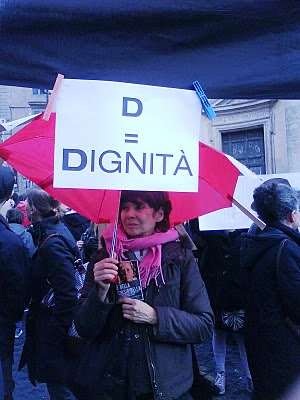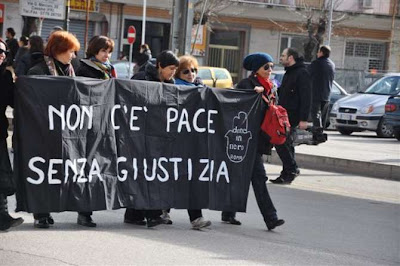
We women continue to be the most affected by the actions of armed groups.
We confirm the need for humanitarian accords in the region.
Bogotá, 25 May 2011. The Ruta Pacífica de las Mujeres launches an urgent appeal to the state institutions, to human rights organisations and to the international community in the face of grave violations of international humanitarian law that are taking place in the departments of Chocó and Cauca, where the civilian population is being held hostage and those engaged in armed clashes avoid their responsibility to distinguish between civlians and combattents.
For this movement of women, it is urgent to protect the population of these departments, especially women and girls, since the increase in the presence and activity of armed groups expose them to high risks. This circumstance provokes a climate of fear in the preelectoral period, generating in women even greater fear of taking part in public activity and so reinforces their exclusion from the political and social scene.
In Chocó in the past 15 days, 220 people were abducted and then released. There is a constant worry that these strategies of war that put at risk the afro and indigenous people who live in the area may continue.
In the department of Cauca, the activities of armed groups is increasing in three directons: firstly putting the civilian population in the crossfire, as is happening in the clashes between the army and the FARC in the north of the department; secondly in the threats against women leaders in the region that have been received in leaflets signed by offshoot groups from the AUC (paramilitaries) who operate in the region, and lastly it is evident in the deterioration of the practices of war and the imposition of terror by paramilitary groups, particularly directed against women with regard to control of their bodies. Consequently, the increase in the presence and activities of these groups in the region puts women and girls who have been victims of systematic sexual violence at the hands of these groups in an situation of extremely serious risk.
The women of Cauca and Chocó confirm that they continue to be involved in outbreaks of armed conflict and that there is no suitable response from the state to protect their rights
It's important to point ut that the dynamic of armed conflict in Colombia and the way in which it heightens favours the continued escalation of violence against women, often not reported because of the lack of judicial structures and of the absence of guarantees for the protection of their lives.
All this reinforces the postion of the Ruta Pacífica de las Mujeres on the overriding necessity for a negotiated settlement to the armed conflict that allows us to put down the basis for a lasting peace in Colombia.




















